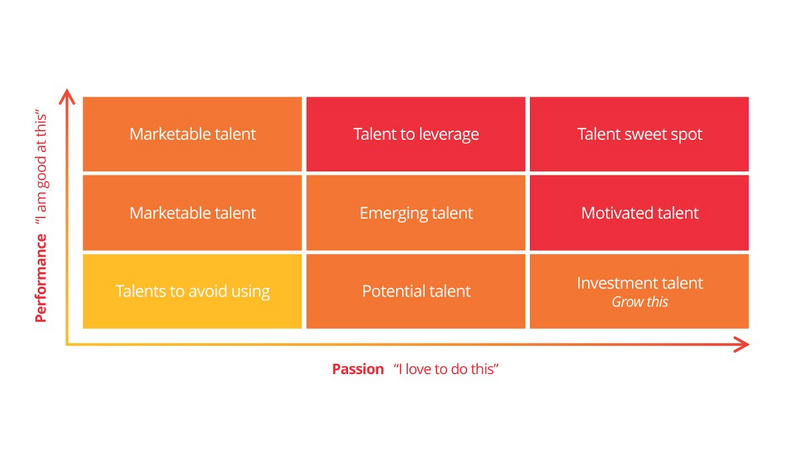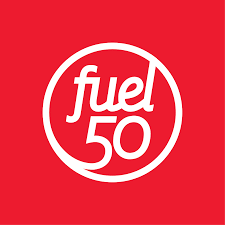ATD Blog
The New Talent Economy
Tue Oct 15 2019

Content
As an organizational psychologist in the pre-Fuel50 days, part of what we did was help organizations develop talent pipes to fit business needs. I used to build psychometric tests that were so good we could eliminate 98 percent of the names and only two or three people would get a “tick.” The truth? This kept me up at night, knowing we had ruled out so many talented individuals. Cue the inception of Fuel50 and our purpose: to give employees control over their careers.
As an organizational psychologist in the pre-Fuel50 days, part of what we did was help organizations develop talent pipes to fit business needs. I used to build psychometric tests that were so good we could eliminate 98 percent of the names and only two or three people would get a “tick.” The truth? This kept me up at night, knowing we had ruled out so many talented individuals. Cue the inception of Fuel50 and our purpose: to give employees control over their careers.
Content
I’d like to dive deeper into what the future of the talent economy could look like, but for now, let’s set the precedent. Why do we need a talent economy, how are these pain-points affecting us today, and what’s our approach? Let’s consider why we need to be thinking differently about the talent within our organizations.
I’d like to dive deeper into what the future of the talent economy could look like, but for now, let’s set the precedent. Why do we need a talent economy, how are these pain-points affecting us today, and what’s our approach? Let’s consider why we need to be thinking differently about the talent within our organizations.
Content
Millennials
Millennials
Content
Millennials will comprise half the workforce by 2020. They have clear career expectations. It’s about transparency, fairness, and acceleration. It’s about being able to use their talents and capabilities to make contributions in a meaningful way.
Millennials will comprise half the workforce by 2020. They have clear career expectations. It’s about transparency, fairness, and acceleration. It’s about being able to use their talents and capabilities to make contributions in a meaningful way.
Content
Automation
Automation
Content
Automation is creating fear for employees and organizations. We need to enable leaders to support their people in adapting to the increasing component of this element. It will become a strategic advantage for those organizations that do a good job with this task.
Automation is creating fear for employees and organizations. We need to enable leaders to support their people in adapting to the increasing component of this element. It will become a strategic advantage for those organizations that do a good job with this task.
Content
Internal Skills Shortages
Internal Skills Shortages
Content
Research has shown that almost 66 percent of organizations will face an internal skills shortage during the next three to five years. Thinking about the skills and the skill readiness of your people is increasingly important.
Research has shown that almost 66 percent of organizations will face an internal skills shortage during the next three to five years. Thinking about the skills and the skill readiness of your people is increasingly important.
Content
Disrupted Career Landscape
Disrupted Career Landscape
Content
Today’s career experience is about longer runs and steeper rises. This means employees are facing more time without job title changes or promotions. When there is a vertical career path, derailment can occur because employees haven’t necessarily picked up the experience and knowledge that more frequent career progression steps once provided.
Today’s career experience is about longer runs and steeper rises. This means employees are facing more time without job title changes or promotions. When there is a vertical career path, derailment can occur because employees haven’t necessarily picked up the experience and knowledge that more frequent career progression steps once provided.
Content
Roller Coaster Career Paths
Roller Coaster Career Paths
Content
Careers are increasingly going to be roller coasters for employees. The speed of change is accelerating. Employees should expect frequent job and skills changes.
Careers are increasingly going to be roller coasters for employees. The speed of change is accelerating. Employees should expect frequent job and skills changes.
Untapped Skills and Talent
Content
According to our research, 86 percent of employees think they have skills and talent that are not being used by your organization. Somehow, we need to connect the dots between these untapped opportunities that employees have and organizations need.
According to our research, 86 percent of employees think they have skills and talent that are not being used by your organization. Somehow, we need to connect the dots between these untapped opportunities that employees have and organizations need.
Content
Fuel50’s approach to democratizing the talent experience includes:
Fuel50’s approach to democratizing the talent experience includes:
Content
Power Up Your People
Power Up Your People
Content
Research has shown that 42 percent of employees are demanding more transparency around their career path and career growth plans. Employees expect a career pathing experience that is like Google Maps. They want a road map to their future—they want to put in their current location and destination, then see their journey. Fuel50’s career pathing feature FuelPathing provides exactly that.
Research has shown that 42 percent of employees are demanding more transparency around their career path and career growth plans. Employees expect a career pathing experience that is like Google Maps. They want a road map to their future—they want to put in their current location and destination, then see their journey. Fuel50’s career pathing feature FuelPathing provides exactly that.
Content
Power Up Your Leaders
Power Up Your Leaders
Content
We need to consider how leaders are thinking about their talent. Do you want pivotal talent? Or do you (like us) want talent that is ready to pivot?
We need to consider how leaders are thinking about their talent. Do you want pivotal talent? Or do you (like us) want talent that is ready to pivot?
Content
Fuel50 is looking at talent as a talent leverage model, where it’s about performance versus passion. Top right is the “talent sweet spot” where an individual plays to their full potential (see figure below). The more an individual can reach this spot, the more engaged and valuable they are going to be to the organization.
Fuel50 is looking at talent as a talent leverage model, where it’s about performance versus passion. Top right is the “talent sweet spot” where an individual plays to their full potential (see figure below). The more an individual can reach this spot, the more engaged and valuable they are going to be to the organization.

Content
Building Talent Citizenship
Building Talent Citizenship
Content
Ultimately, we are working to create a new democratized world of talent. With talent citizenship, employees are treated equally and fairly as true citizens and contributors to your mission and goals.
Ultimately, we are working to create a new democratized world of talent. With talent citizenship, employees are treated equally and fairly as true citizens and contributors to your mission and goals.
Content
Fuel50 rewards effort, skills, influence, and contribution, which are tracked by the employee and endorsed by colleagues rather than evaluated by the manager. We have a culture where all are equal and individual talents are celebrated. All are economic contributors and benefit in a way that is fair to everyone.
Fuel50 rewards effort, skills, influence, and contribution, which are tracked by the employee and endorsed by colleagues rather than evaluated by the manager. We have a culture where all are equal and individual talents are celebrated. All are economic contributors and benefit in a way that is fair to everyone.

